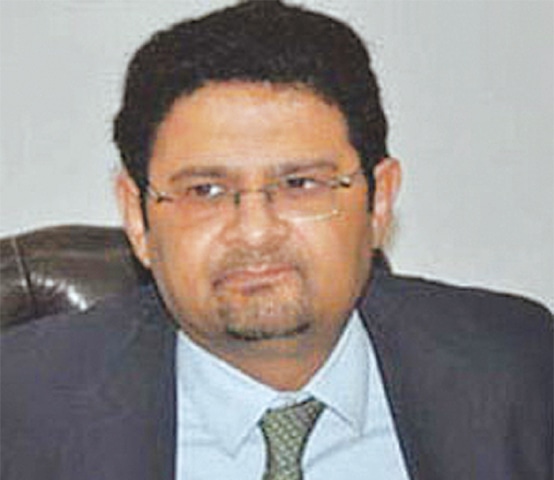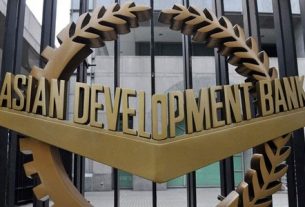For the opposition, commenting on the recent bailout package by the International Monetary Fund (IMF) is like critiquing a painting by George W. Bush: you’re required to hate it whether you like it or not.
The IMF deal offers the opposition an endless buffet of contentious points to choose from: its delayed timing and small size aside, the IMF deal appears to be riddled with conditions that may upend the national resource distribution mechanism and expose the exchange rate to wild swings.
Yet the quality of criticism that the opposition has levelled at the deal leaves a lot to be desired. Its criticism has so far been short on content and long on trite expressions like ‘sovereignty sell-out’ and ‘economic disaster’.
However, Miftah Ismail of the PML-N has shown a surplus of caution while criticising the IMF package. Unlike other PML-N leaders whose smugness is out of proportion to their party’s achievement in office, Mr Ismail has controlled the extra spring of confidence in his step so far.
“I wouldn’t condemn the IMF package as harshly as some of my colleagues do. But I will say that the unnecessary delay in approaching the IMF has cost the country dearly,” Mr Ismail told Dawn.
The PML-N government signed a three-year IMF programme in 2013-14. Yet the economy was back in the throes of a similar balance-of-payments crisis within three years of the completion of that bailout package.
Talking to Dawn, PPP leader Taj Haider claimed that going to the IMF was unnecessary at this point.
He also took pride in the fact that the PPP did not complete the IMF programme in its last government.
“The caretaker government that preceded the PPP’s last stint in power had signed up for an IMF bailout package. But we discontinued it,” he claimed.

Contrary to his assertion, it was the PPP’s adviser to the premier on finance who negotiated and finalised an IMF bailout package in November 2008. The IMF terminated the loan programme prematurely in September 2010 as Pakistan failed to follow up on sales tax and energy reforms.
Inordinate delay
It’s hard to verify the claim by former finance minister Asad Umar that the delay in seeking the bailout was to ensure favourable conditions. Analysts believe that his dilly-dallying has worsened the country’s external sector considerably since October when the first round of negotiations took place.
Pakistan faces an annual financing gap of $12 billion. The country’s financing needs will remain largely unmet even if it gets 50 per cent of the total IMF support ($3bn) upfront and receive another $1.5-2bn from other international lenders in 2019-20. Had Pakistan sought the IMF deal earlier in October, the country would have ample time to raise additional funds by floating bonds in the international debt market.
Word has it that one of the reasons for Mr Umar’s removal from the Ministry of Finance was his failure to make overseas Pakistanis invest in Pakistan Banao Certificates (PBCs) enthusiastically. Who knows the reaction to PBCs might have been different had the country offered expatriates bonds of up to 6.75pc return after getting into an IMF programme.
Meddling in constitutional affairs
The government has yet to release details of the IMF loan. The only source of publicly available information on the deal is the IMF’s carefully worded press release, which hints at, among other things, a market-determined exchange rate and a rebalancing of fiscal arrangements in view of the National Finance Commission (NFC).

“Why is the IMF commenting on the NFC? The only way the share of the provinces can be reduced is through a constitutional amendment. How can an international lender interfere in our constitutional matter?” said Dr Kaiser Bengali, an economist who represented Sindh during the last NFC Award negotiations.
The IMF has long demanded that the provinces should strive to post a surplus to bring down the overall deficit. “But why should the provinces go without dinner if Islamabad can’t make its ends meet?”
The centre was supposed to increase the tax-to-GDP ratio to 15pc and reduce expenditures by abolishing a large number of ministries and departments after the 18th Amendment. “The centre has failed to live up to its commitments and now wants to take away provincial resources on the pretext of the IMF programme,” he added.
The economy is poised to experience an IMF-administered dose of austerity. The government’s focus will be on stabilisation, not growth. The total development budget is going to be Rs1.57 trillion in 2019-20, a 10pc decline from the current year. Job creation will slow down and demand will compress further, thanks to higher taxes and interest rates.
“Pakistan is a sinking ship. The elite are pulling out nuts and bolts from the ship to reinforce their own cabins. But they don’t realise that their cabins will also go down along with the entire ship,” said Dr Bengali.



